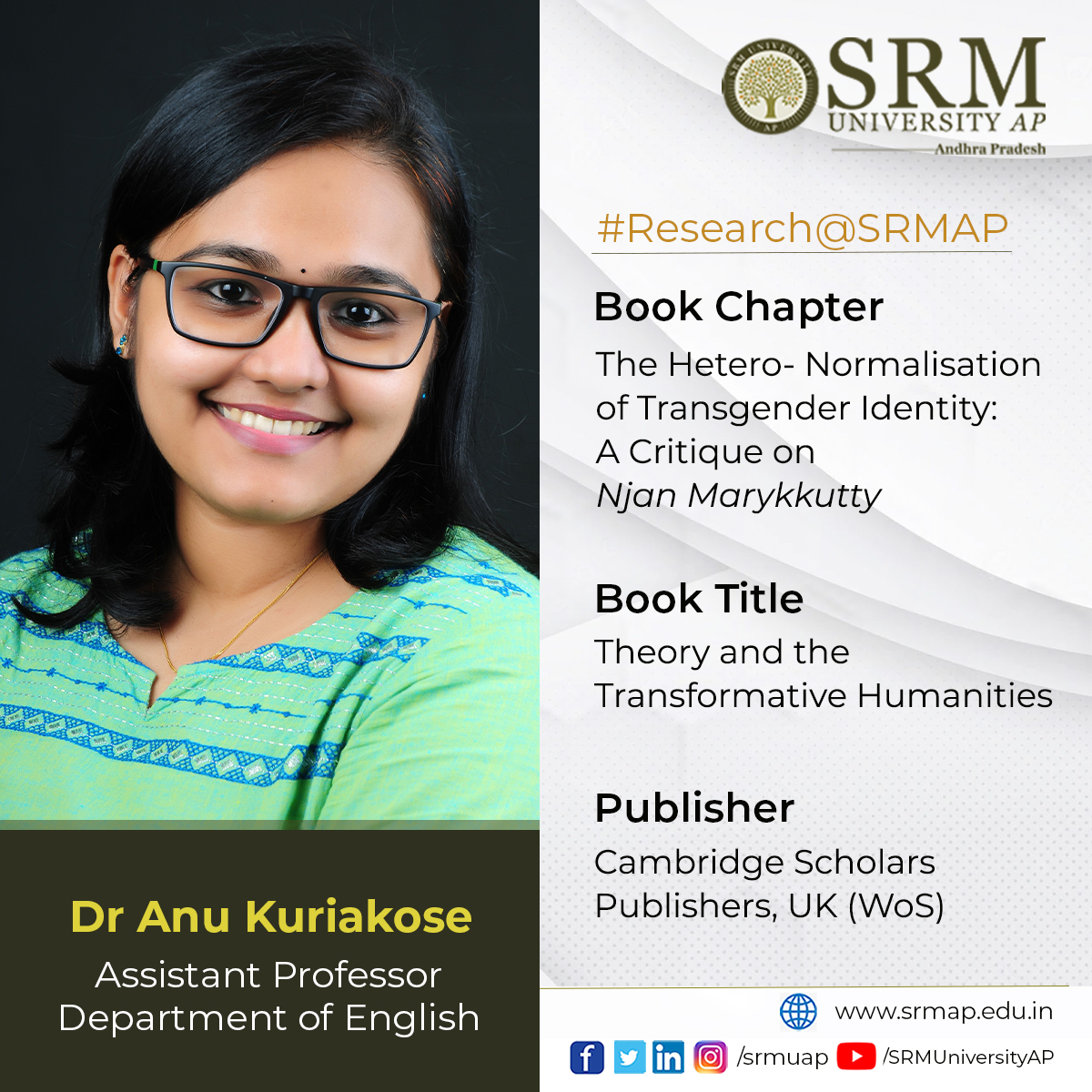 The trajectory of trans representation in cinema is essentially critical since the predominant viewers belong to the heteronormative cisgender public. Visual media played a massive role in inculcating the idea of gender identity into the preconditioned entity of heteronormativity. The skill and sympathy of the filmmaker in handling trans issues hold a significant chunk of this representational politics.
The trajectory of trans representation in cinema is essentially critical since the predominant viewers belong to the heteronormative cisgender public. Visual media played a massive role in inculcating the idea of gender identity into the preconditioned entity of heteronormativity. The skill and sympathy of the filmmaker in handling trans issues hold a significant chunk of this representational politics.
The popular media in Kerala has reconfigured its space to include people with gender non-conforming identities and sexual orientation as a matter of concern in contemporary times. However, there are times when the filmmakers fail to understand the assignment. The new research chapter of Assistant Professor Dr Anu Kuriakose, Department of English, articulates the discomfort of seeing the misrepresentation of transgender identity in mainstream cinema. The chapter titled The Hetero- Normalisation of Transgender Identity: A Critique on Njan Marykkutty was published by Cambridge Scholars Publishers, UK (WoS) and belongs to the book Theory and the Transformative Humanities.
Problems that face the humanities discipline today have sparked an intense debate across the globe. The Theory of the transformative humanities envisions a domain of inquiry that attempts to transform cultures, individuals, and society. This volume explores different theoretical perspectives and practical orientations through which to perceive, innovate and transform the world in which we live. It opens diverse fields of thinking and research. It offers a broader perspective on how a critical-literary approach could be deployed in addressing the multidimensional and evolutionary nature of the humanities in a way that caters to the needs of the present. A compilation of scholarly essays on topics as diverse as post-millennial theory, trans-humanities, posthumanism, interdisciplinarity, psychoanalysis, and film studies, the book provides an enabling platform for intellectuals, research scholars, and experts in the humanities to tap into the transformative potential of the field.
This chapter critically examines the representational politics of the central transgender character Marykkutty in the 2018 Malayalam film Njan Marykutty. The release of this film marked an unprecedented debate on transgender identity in Kerala’s public sphere, more specifically, about transwomen’s visibility in the public sphere. This is quite significant, as it has been a moment of the culmination of various activist, academic, and governmental interventions in the state attempt to mainstream the trans identity from the margins of society. She has used visual and thematic analysis as a method to critically look at the visualization of a trans feminine body in this film. The chapter analyses the trans identity in terms of Judith Butler’s theory of gender performativity, Julia Kristeva’s ‘abject,’ and Jacques Lacan’s notion of ‘object petit a’ or object of desire. It is argued that the excess in normalisation of the transgender body ironically endorses the heterosexual values of the binary gender performance when the surgically re-appropriated body is celebrated, clapped on the big screen, and sensationalised as an achievement when the central character themselves voices, “I am not a transgender, I am a transsexual.”
Heteronormativity safeguards the normalisation of heterosexuality through myriad practices so as to concrete the notion of a legitimate form of sexuality. Dr Anu Kuriakose attempts to denaturalise and denormalise the excessive lauding of heterosexuality in cinema to open up a less distorted corridor to queer desires and identity.

